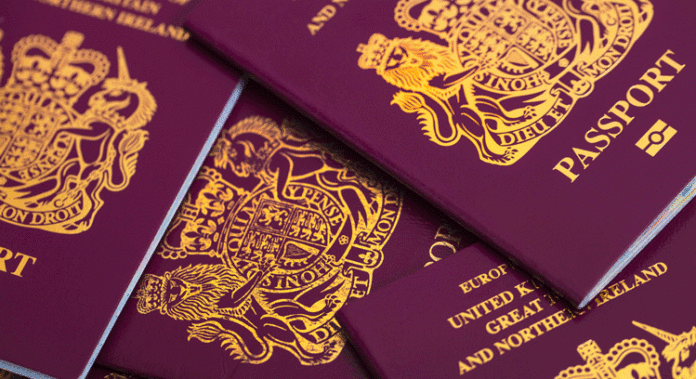
THE NUMBER of people living elsewhere in the EU who applied for a British passport jumped by more than a third last year, as they sought to secure the right to live, work and be educated in the UK after Brexit.
Figures compiled by the Passport Office, released to the Financial Times under a Freedom of Information request, show 13,070 people living outside the UK but inside the EU applied for their first British passport in 2016, up 35% on 2015. This is more than double the rise between 2014 and 2015.
The largest number of applications came from France, where 2,369 individuals applied for a British passport last year, a 28% rise on 2015. There were also 2,140 applications in Germany, a rise of 60%. The surge was particularly noticeable in July, the month after the Brexit referendum.
British passports applications from people living in other parts of the EU were that month up 127% year-on-year in the Netherlands, 126% in Germany and 56% in France, the Passport Office data show. As the applications were made outside the UK, they are more likely to have been on behalf of people who were eligible for a British passport but never applied, such as those born in the EU to one or more British parents. Roughly two-thirds of applications contained in the FOI request were for children.
Marjorie Wessel, a Briton living in the German city of Düsseldorf, applied for a UK passport for her youngest daughter, a Dutch passport holder, to ensure she would be able to live in the UK and attend a British university as a home student after Brexit.
“I am always going to be a foreigner [in Germany],” said Ms Wessel, who has a Dutch husband. “The UK is one country where I really belong. And my children, too, want to put down some roots and call somewhere home.”
What happens to EU citizens from other member states living in the UK and to British citizens in other EU states has emerged as one the most important — and potentially difficult — aspects of the Brexit negotiations.
“There’s a feeling of uncertainty about the UK’s exit negotiations in general and about citizens’ rights in particular,” said Michael Leigh, a Brussels-based senior fellow at the German Marshall Fund of the US.
“The rush to apply for different passports is partly related to the concern that citizens’ rights could be restricted in some way.”
The number of applications for British passports from the EU is outweighed by traffic in the other direction. The number of Britons applying for Irish passports has risen sharply since the Brexit vote, according to Dublin’s foreign ministry, which has deployed extra staff and put additional resources into its passport service to cope.
The ministry said the number of Britons seeking to become Irish citizens was up by about two-thirds to more than 23,000 in the first three months of 2017, compared with the same period last year. It expects to issue more than 1m passports in 2017 for the first time, compared with 733,000 last year, owing to rising demand from the UK. The Passport Office data does not include figures for 2017.








